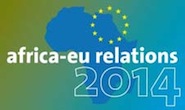While “good governance” has been on donors’ agendas for some time now, development practitioners realise more and more that all reforms require an understanding of governance contexts. As a result, they increasingly consider governance as a cross-cutting element of all development policy with a subsequent rising interest and demand in political economy analyses. In this context - and with its mandate expiring in December this year - the OECD-DAC’s Governance Network (GOVNET) , a donor platform, met last week to discuss a “new focus and strategy” with ECDPM in attendance as an observer. Participants discussed a wide ...
++ GUEST CONTRIBUTION ++ In response to the Arab Spring, the European Union (EU) promised to shift away from business as usual. It aims to put support for human rights and democracy at the centre of its co-operation policy with the Arab neighbourhood. In this regard, enabling civil society to function, to advocate for citizens’ priorities and rights and to hold governments and donors to account is pivotal. However, regional consultation on EU policies appears to have been either insufficient, without impact or unappealing. Furthermore, double standards in the past have undermined the EU’s credibility ...
Transparency is hot. Never before in debates about development or economic governance has there been such a strong focus on transparency. This has been well illustrated in the European Union (EU) over the past few months where the European Commission (EC) has taken action to promote transparency in three different arenas. One action related to private sector transparency. The European Commission proposed amendments to existing transparency requirements for companies in extractive industries. Stricter rules for mining, forestry and energy firms could improve governance in resource rich developing countries. Secondly, the EC’s new draft policy on ...
On a recent visit to Pakistan the UK Prime Minister, David Cameron, said that the Pakistanis would have to work on improving their tax system if they were to justify the 650m pounds aid package being offered. As the FT reported, “Mr Cameron admitted it was difficult to justify such aid when British taxpayer saw “waste” in a country where “too few people pay tax”. Although he importantly left out any mention of the role of UK and other developed country tax havens in depriving developing countries of much-needed revenues (something examined in detail in ...

















